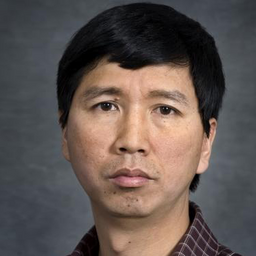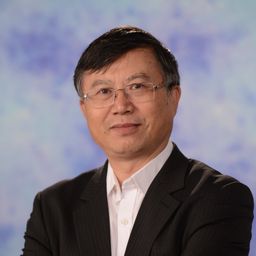Plenary Session 3
My Session Status
Tianzhen Hong, Ph.D. Decarbonization of Buildings: Strategies Integrating Energy Sufficiency, Efficiency, Flexibility, and Resiliency. Globally buildings consume more than one-third of primary energy and produce more than one-third of GHG emissions. Decarbonizing the building sector is essential to achieving global carbon-neutral economy. This talk illustrates strategies to decarbonize buildings that integrate four interacting aspects of energy sufficiency, energy efficiency, energy flexibility, and energy resiliency. Bio: Dr. Tianzhen Hong is Senior Scientist and Deputy Head of the Building Technologies Department of Lawrence Berkeley National Laboratory. His research employs interdisciplinary approaches to explore technologies and human factors for planning, design and operation of energy efficient, demand flexible, and climate resilient buildings across scales. He actively participated in international collaborative projects including Annex 53, 66, 79, and 81. He is an IBPSA Fellow, ASHRAE Fellow, and Highly Cited Researcher 2021. |
Yuguo Li, Ph.D. Dilution for Avoiding SARS-CoV-2 Transmission The COVID-19 pandemic has generated new data and knowledge for understanding the transmission respiratory infection in air. I shall argue that the transmission of SARS-CoV-2 has been predominated by the inhalation route, although the roles of short- and long-range inhalation may differ for the Omicron variant and those earlier ones. The most important transmission phenomenon is the less or rare occurrence of outdoor transmission, and most observed outbreaks with measured ventilation rates occurred in spaces without sufficient dilution. Effective dilution can be achieved by ventilation, filtration, airborne pathogen deactivation, and/or spaciousness. It appears that the dilution requirement for avoid Omicron transmission is much higher than that for early variants. mass wearing of surgical masks seems to be effective with most of indoor spaces for early variants of SARS-CoV-2, while insufficient for Omicron variant. There is a need for studying transmission of air-related diseases and associated air hygiene, just as we did for water-related diseases and associated water hygiene. Bio: Yuguo Li is a Chair Professor of Building Environment at HKU. His current research topics include city climate, environment studies of infection and indoor environment. He serves as Editor-in-Chief of Indoor Air. Since early 2020, he has collaborated with Hong Kong Governmental departments, Guangdong CDC, Hunan CDC, and WHO, and studied the transmission routes of SARS-CoV-2 in buildings. He is a member of the WHO IPC GDG and also WHO Environment and Engineering Control Expert Advisory Panel (ECAP) for COVID-19. |

